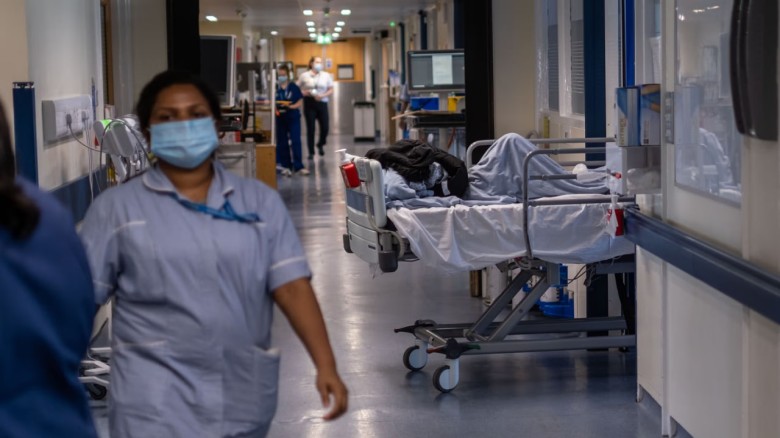Norovirus Cases in English Hospitals Reach Record High Amid Changing Hygiene Habits
The number of norovirus patients in hospitals across England has reached an all-time high, according to the latest NHS figures. Experts suggest that a return to pre-pandemic hygiene habits may be contributing to the surge.
Norovirus, commonly known as the winter vomiting bug, is highly contagious. While most people recover within a few days at home, the virus can pose serious risks for older adults, young children, and individuals with weakened immune systems.
Data from NHS England reveals that an average of 1,160 patients per day were hospitalized with norovirus last week—a 22% increase from the previous week. This is more than double the rate recorded during the same period last year when daily hospitalizations averaged 509 cases. The previous high, recorded just two weeks ago, saw an average of 961 cases per day.
The number of Covid-19 patients in hospitals is also increasing, though at a slower rate. Meanwhile, respiratory syncytial virus (RSV) cases among children continue to climb, and flu-related hospitalizations remain high despite recent declines.
Hospitals across England are struggling with near-capacity occupancy levels, with more than 95% of adult hospital beds filled. Health officials attribute this strain to both rising demand and delays in patient discharge, with nearly one in seven beds occupied by patients who are medically fit to leave but remain in hospital.
Professor Sir Stephen Powis, the national medical director of NHS England, expressed concern over the growing number of norovirus cases. “It is concerning to see norovirus cases reach an all-time high, placing additional pressure on hospital staff who are already working tirelessly to care for more than a thousand patients each day affected by this unpleasant virus, alongside other winter illnesses,” he said.
To help curb the spread of norovirus, Powis emphasized the importance of regular handwashing with soap and water and avoiding contact with others until at least 48 hours after symptoms subside.
Dr. Simon Williams, a behavioral scientist and public health researcher at Swansea University, suggested that the resurgence of norovirus could be linked to relaxed hygiene practices post-pandemic.
“During 2020 and 2021, handwashing and sanitizing became more common due to Covid-19. However, as concerns over infections have decreased, so have these habits,” Williams explained. “Surveys indicate that around one in five people don’t always wash their hands after using the toilet, and about four in ten don’t wash their hands before handling or preparing food.”
Another major factor, Williams noted, is presenteeism—the expectation for individuals to attend work or school even when unwell.
“Most hospital-acquired norovirus cases are spread by people who are actively experiencing symptoms. The key takeaway is that if you’re sick, it’s essential to minimize close indoor contact and avoid sharing food or drinks, particularly with those who are more vulnerable, such as the elderly or immunocompromised individuals,” he said.
“Norovirus can be severe for some, but even for otherwise healthy individuals, it’s an unpleasant illness that can often be prevented with simple precautions.”






































































Leave A Comment